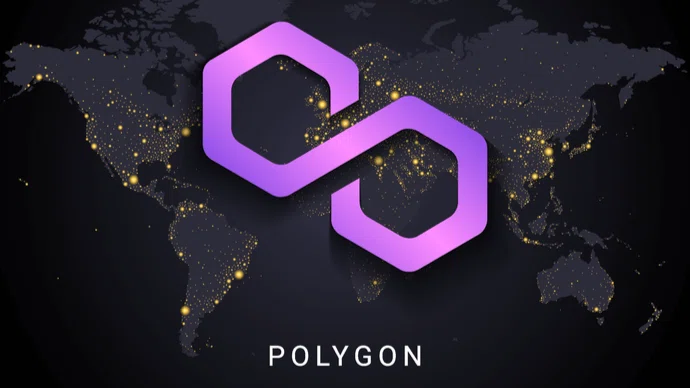The regulatory framework that financial services must comply with, complex payment architectures, and fraud are some of the reasons why financial services are difficult and expensive to build [1]. Banking as a service was created to address some of the hurdles of building financial services, by rebuilding existing financial products. Traditionally, core banking systems have been monolithic, running at an expensive data center within a bank. Nowadays, banks are providing banking "as a service" by building their infrastructure in the cloud, enabling features such as deposit accounts, credit card issuance, and compliance to be provided in this manner. In this way, any organization can now offer financial services, not just banks. For example, the company Lyft now offers bank accounts for their drivers.
Before, financial technology (Fintech) was only available to banks, but now any company can add it. Fintech is used to describe new tech that seeks to improve and automate the delivery and use of financial services [2]. By integrating specialized software and algorithms into computers and smartphones, Fintech technology helps companies, business owners, and consumers to better manage their financial operations, processes, and lives [2]. Even though banking "as a service" continues to solve many problems, our banking infrastructure needs to be further evolved, and open source will drive the next generation of infrastructure.
Open source and Fintech: what are the benefits?
Now you might be wondering what open source has to do with Fintech. Gabriele Columbro, the FINOS's executive director, said "Open source should be a strategic technology pillar for this industry, like cloud or fintech. While we have seen the outlook on open source drastically improve in the last few years, across a historically closed industry, we still need dedication across all leadership levels at financial institutions and fintechs to build a truly open financial ecosystem to ultimately deliver the much-needed, next-generation technology stack the industry requires." [4].
The truth is that the Fintech industry is increasingly attracted to open source technologies. Despite open source being used in many different sectors, open source is wide accepted and easy to adopt, which lowers the barriers for projects usage and helps Fintech to make strategic decision-making.
Today, adopting open source typically means deploying cloud native apps and migrating workloads to public or private cloud built on open source infrastructure [3]. Current Fintech companies using open source are driven by the increasing usage of cloud resources [3]. Cloud and open source works cooperatively. For example, open source NoSQL databases such as MongoDB and Cassandra are highly-scalable, flexible, good for big data storage, and can be run on the cloud. But it's not only that, open source has many benefits for the Fintech industry, as we list below:
- It helps companies to reduce software and infrastructure costs.
- Open source leads to increasing innovation and it has become key for different Fintech enterprises.
- To leapfrog existing legacy technology (more than 40% of bank's code is built in COBOL, a 60-year-old programming language), open source is suitable to be used in a sandbox environment, in which companies can experiment different technologies. Furthermore, companies can change their monolithic applications to microservices with the help of open source. For example, the open source TARS project allows companies and developers to quickly transition their monolithic applications to microservices.
- Software developers and engineers can work on cutting-edge projects. They can also receive peer recognition of their contributions to open source.
- Open source can deliver market advantages, accelerate the development process, and lower the development cost, which allows companies to quickly build portfolio and start new projects.
- Open source often provides foundational technology, including languages, libraries and database technologies that can provide a rich foundation to quickly develop applications.
What is the state of open source in financial services?
The Fintech Open Source Foundation (FINOS)conducted a survey this year in 2021 to gather insights on the state of open source in financial services. The survey was conducted with the Linux Foundation Research,Scott Logic, Wipro, and GitHub. Overall, the survey found that open source is being widely adopted, but there's a lot of things left to be done. According to Gabriele Columbro, the FINOS's executive director, "The results are clear -- if financial industry leadership fully commits to open source and fosters a culture of collaboration within their companies, they can expect to make a positive impact on their business."
We highlight below the main findings of the report:
- At least 80% of the respondents agreed or strongly agreed that innovation, reduced
time-to-market, and total cost of ownership are now recognized as key reasons for Fintechs to engage in open source. - Inner source, i.e., the application of open source development practices inside an organization, is a growing trend with 59% indicating that they or their colleagues contribute to work-related software projects that are open to their business unit or to their entire company. Although there is some debate about whether inner sourcing leads to more open source projects, it's a sign that fintechs are moving in the right direction.
- 53% of the respondents indicated that they want to contribute to open source because it's fun and 54% because they learn to code. Although only 40% get to spend time at work contributing to open source projects, 66% spend some personal time on this activity.
- While still far from ideal, women are better represented (6.86%) in the financial open source community than in the open-source community at large (3.17%), when compared to theFOSS contributor study. This is good and it means that the financial open source community is becoming more diverse.
How to start to contribute to Fintech open source projects?
The Fintech Open Source Foundation (FINOS) is a foundation under the Linux Foundation that aims to promote open innovation in financial services. Feel free to checkout their GitHub projects and start contributing to them.
References
[1] https://future.a16z.com/open-source-financial-services/
[2] https://www.investopedia.com/terms/f/fintech.asp
[3] https://fintechmagazine.com/venture-capital/open-source-and-cloud-power-couple-financial-services
[4] https://www.zdnet.com/article/open-sources-slowly-growing-role-in-fintech/












